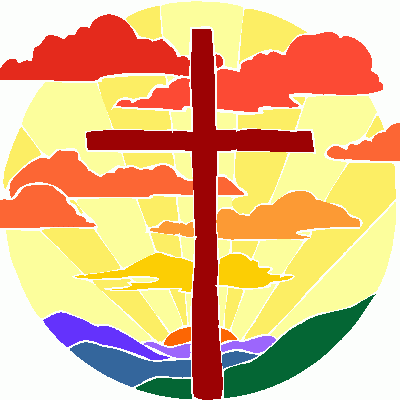Caring for a flock of sheep is hard, dirty, stressful manual labor. But sheep need a shepherd. They get into trouble easily, wandering after anything interesting (and when one sheep wanders, others have a tendency to follow them into trouble!). Sheep also don’t have very good ways of defending themselves. They can’t run fast as deer can; they don’t have sharp teeth or claws to use against a determined predator; they are only “OK” at using either front or back hooves to kick. On their own, their only defense is in numbers: Hopefully a predator will only get a few on the outer edges of the flock. That’s why shepherds are very careful to track down strays; those are the most vulnerable animals of all (Luke 15:3-7). (See some modern, non-Biblical, information on the subject here and here. Also see some interesting trivia facts and funny pictures here.)
Shepherds in the Bible – Literally
Sheep were important to the culture in Biblical times. Flocks of sheep are mentioned in the Bible as early as Genesis 4:4, where Adam and Eve’s son Abel brought them as an offering to God. The patriarchs of the Jewish nation – Abraham (Genesis 21:27), Isaac (Genesis 26:12-14), and Jacob a.k.a. “Israel” (Genesis 37:12-14) – all had flocks or tended them. Moses was tending sheep when he encountered the burning bush and was sent to lead the people out of Egypt (Exodus 3:1-4). David, also, was tending sheep when he was called to be king (1 Samuel 16:10-13), and he drew on his shepherding experience as he went to fight the giant Goliath (1 Samuel 17:34-36).
Shepherds in the Bible – Figuratively
Leaders were often described as shepherds, such as David as king (2 Samuel 5:1-5) or New Testament church leaders (John 21:15-17, 1 Peter 5:1-3). The prophet Ezekiel condemned bad leaders as bad shepherds neglecting their flock (Ezekiel 34:1-10). The prophet Jeremiah also did so – regularly! (Jeremiah 10:21; 12:10; 23:1-2; 50:6) When the leaders were bad or absent, the people were described as “sheep without a shepherd” (Numbers 27:16-17, 1 Kings 22:17, Matthew 9:36).
Realize what that also means: that people in general often behave like sheep, defenseless and prone to get into trouble. Psalm 119:176 says “I have gone astray like a lost sheep”. Picking up on the word “astray”, I find it used at least 40 times in the Bible to mean, not sheep, but people wandering away from God.
God Himself is described as a Shepherd. The best-known example of this, of course, is in Psalm 23 (“The Lord is my Shepherd. I shall not want.“). But the description is also repeated in other places, such as Isaiah 40:10-11, Psalm 95:6-7, and Psalm 100:3. In Ezekiel 34:11-16 and Jeremiah 23:3, God is taking over the flock after the bad shepherds have failed to do their job; God is going to make it right.
Speaking of “making it right”, the coming Messiah is also pictured as a Shepherd in Ezekiel 34:23-24 and 37:24-25 1 and Micah 5:4.
Jesus, the Good Shepherd
So when Jesus went to some length to describe Himself as the Good Shepherd (John 10:1-15), He was making a major claim. His listeners, the Pharisees, were the religious leaders at the time and were openly antagonistic to Him. They would have heard Him saying that:
- They were the bad shepherds, and
- He was God/Messiah, the Good Shepherd who was taking the care of the flock away from them.
For some reason, that did not make the Pharisees like Him any better! But the common people “flocked” to Him. They could tell that He was special: He spoke with authority (Matthew 7:28-29); He took care of them (Matthew 15:30-31); He met their needs (Mark 6:41-44). The people “knew His voice”, as He said that sheep recognize the voice of their own shepherd, and so they followed Him.
Jesus said: “I am the good shepherd; the good shepherd lays down His life for the sheep.” He then went on to prove His claim…on the cross. He did indeed lay down His life for us (John 19:28-30), as Isaiah had predicted 700 years earlier (Isaiah 53:5-6). So I would say that Psalm 23 is a good description of Jesus, as He is a very good shepherd to me…a sheep.
The LORD is my shepherd,
Psalm 23
Jesus guides, guards, protects, and cares for me.
I shall not want.
Jesus provides everything I need.
He makes me lie down in green pastures;
Jesus gives me peace.
He leads me beside quiet waters.
Jesus gives me safety.
He restores my soul;
Jesus reconciles me to God.
He guides me in the paths of righteousness
Jesus covers my sin with His righteousness.
For His name’s sake.
Jesus answers me when I call on His name.
Even though I walk through the valley of the shadow of death,
Jesus can be trusted even with my worst problems.
I fear no evil, for You are with me;
Jesus is always with me.
Your rod and Your staff, they comfort me.
Jesus guides and disciplines me as needed, always for my best good.
You prepare a table before me in the presence of my enemies;
Jesus continues to provide for me even during hardship.
You have anointed my head with oil;
Jesus has chosen me to be one of His own.
My cup overflows.
Jesus gives me more than I can ever deserve.
Surely goodness and lovingkindness will follow me all the days of my life,
Jesus came so that I could have life “abundantly”.
And I will dwell in the house of the LORD forever.
Jesus is preparing a place for me in Heaven with Him.


